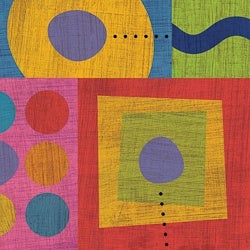The 43rd Annual Meeting of the Society for Medical Decision Making (SMDM) was conducted virtually and included contributions by CHDS faculty, postdocs, and students. CHDS affiliated faculty Natasha Stout presided over the meeting as SMDM President; the theme was “From the Individual to Society: How Systems and Societal Factors Shape Health Care Decisions.”
Oral and poster presentations included work from Allison Portnoy and CHDS students Andrea Luviano, Karen Smith, and Jinyi Zhu.
Oral abstracts included:
- Luviano: “Estimation of Causal Effects of Comorbidities on COVID-19 Mortality in Hidalgo, Mexico Accounting for Competing and Time-Varying Risks: A Parametric Multistate Modeling Approach”
- Luviano: “Population Impact of a Citywide Screening Program of Colorectal Cancer in Mexico City: A Modeling Study”
- Portnoy: “Cost-Effectiveness of De-Intensifying Cervical Cancer Screening for Women Vaccinated Against Human Papillomavirus Infections in Norway”
- Portnoy: “The Impact of Modeling Assumptions on Time-Dependent Disease Outcome Risk on the Estimated Effect of Interventions: A Measles Vaccination Case Study”
Poster abstracts included:
- Smith: “Quasi-Experimental versus Observational Methods for Modeling Blood Pressure Interventions When the Change in Blood Pressure is Known, but the Effect on Long-Term Outcomes is Not” [Winner of the Stephen Pauker Award for Outstanding Presentations in Quantitative Methods and Theoretical Developments]
- Zhu: “Prioritizing Quality Measures in Acute Stroke Care – A Cost-Effectiveness Framework”
CHDS core faculty Eve Wittenberg led a symposium entitled, “Advancing Research on Emotional Well-Being: Introducing a Family Well-Being Research Network,” a collaboration among PI’s Lisa Prosser of the University of Michigan (adjunct faculty at CHDS) and Janel Hanmer of the University of Pittsburgh. The presenters were joined by NIH officers to describe FAM-NET’s pilot grants, scholar mentoring, events, and web-based research resources, all designed to catalyze research on the measurement of family well-being and pediatric quality of life.
CHDS adjunct faculty and previous SMDM president Uwe Siebert co-led a short course entitled “Causal Inference & Causal Diagrams in MDM Using Big Real World Observational Data & Pragmatic Trials,” that introduced the principles of causation and causal diagrams, with focus on Directed Acyclic Graphs (DAG) and a brief introduction to methods for causal inference.
Learn more: Read about SMDM.
Related news: Wittenberg Launches Family Well-Being Research Network
Related news: Hsieh and James Receive Raiffa Awards
